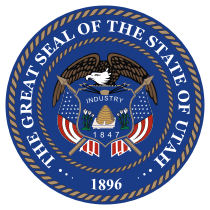A PRISM contribution; written by Jason Roberts
Lester Munson and Paula Lavigne of ESPN.com reveal on March 31st that the attorney general of Utah, Mark Shurtleff, is currently “gathering contracts, statistics, economic data and experts” in preparation for the filing of an antitrust lawsuit against the BCS as early as June of this year.
Coming on the heels of the University of Utah being ousted from the national championship picture this past season, this despite going undefeated in 2008, Shurtleff currently maintains, “From the very first kickoff of the college football season, the BCS uses its monopoly powers to put more than half of the schools at a disadvantage.”
The article notes that Shurtleff does not face an easy battle in taking on the BCS. In order to win, Munson and Lavigne suggest, the attorney general must prove “the BCS has total control of the postseason bowl market for its games, that it uses its control to help some conferences and schools at the expense of others, and that the BCS system has damaged the University of Utah as well as the state of Utah.”
Still, it is not a lost cause. Antitrust experts and scholars contacted by ESPN.com such as Andrew Zimbalist, professor of economics at Smith College, seem to concede Zimbalist’s suggestion that there is “no doubt that the BCS is a near monopoly . . . . that uses its power to make unequal payoffs to conferences and schools,” as well as provides for certain conferences “opportunities for rewards which are not equal.” Should the argument for such opinion be a clear and effective one, the BCS could “face court orders requiring it to mend its ways and pay triple damages to states and universities harmed by the BCS, as well as their legal fees,” notes Munson and Lavigne.
At this point in time, the BCS committee does not appear phased by the growing legal pressure mounting against it, with David Frohnmayer, chair of the BCS Presidential Oversight Committee, telling ESPN.com, “Frankly, we’re not concerned about.” Frohnmayer continues, stating, “People can threaten lawsuits all they want, but it’s another thing to be successful . . . I am convinced that an antitrust suit would be utterly without merit. And I speak as a former state attorney general.”
A key reason why moves such as the one by Shurtleff are sure to fail in the eyes of Frohnmayer? The fact that at the time of its inception, every Division I football conference — including Utah’s Mountain West Conference — “voluntarily agreed” to participate in the BCS exercise.
Also to take into consideration, notes the article, is the fact the BCS just recently signed a four-year, $125 million contract with ESPN to broadcast BCS games beginning with the 2010 season. While some maintain that the pressure for Congress and now the state of Utah could force an adjustment to those agreements, many others believe, as the article points out, that the television contract, in reality, acts to decrease “the likelihood that the BCS would agree to significant changes in its format in the foreseeable future.”
Still, Shurtleff remains focused on the bringing his antitrust suit against the BCS, telling ESPN.com that he will “present the material and a draft of the lawsuit to the meeting of the state attorneys general in June” in Colorado Springs, Colorado, and “will be ready to file suit shortly thereafter.” In the meantime, he is in the process of contacting other states and universities interested in joining his call for reform in hopes of also establishing a class action case against the BCS, which, write Munson and Lavigne, “would multiply the possible consequences for the BCS” should the antitrust case prevail.
Leave a comment